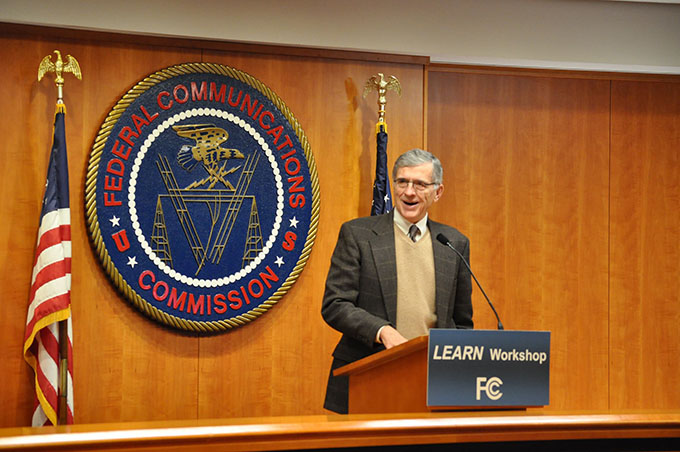- Qualcomm Launches Snapdragon 4 Gen 2 Mobile Platform
- AMD Launches Ryzen PRO 7000 Series Mobile & Desktop Platform
- Intel Launches Sleek Single-Slot Arc Pro A60 Workstation Graphics Card
- NVIDIA Announces Latest Ada Lovelace Additions: GeForce RTX 4060 Ti & RTX 4060
- Maxon Redshift With AMD Radeon GPU Rendering Support Now Available
This Is Huge: FCC’s Tom Wheeler Proposes Title II Classification To Ensure An Open Internet
What a nice mid-week surprise! FCC Chairman Tom Wheeler took to Wired to tell us about a new proposal that would make net neutrality a reality: Classifying it as a Title II utility. Make no mistake, this is the big one – the move that will help us preserve our open Internet.
In his post, Wheeler gives us a brief history lesson to help us understand that its current stance on net neutrality shouldn’t come as a surprise. In the 60s, the FCC prevented AT&T from prohibiting others from attaching non-AT&T equipment to the network. Wheeler says that it was this groundwork that allowed companies such as AOL to grow in the earliest days of home computing.

Let’s not be so quick to pat the FCC on the back, though: It wasn’t even a year ago when Wheeler’s opinions on net neutrality greatly contrasted with these new ones. But at the end of the day, the fact that he’s come around is what’s important.
I am submitting to my colleagues the strongest open internet protections ever proposed by the FCC. These enforceable, bright-line rules will ban paid prioritization, and the blocking and throttling of lawful content and services. I propose to fully apply—for the first time ever—those bright-line rules to mobile broadband. My proposal assures the rights of internet users to go where they want, when they want, and the rights of innovators to introduce new products without asking anyone’s permission.
With our Internet classified as a Title II utility, ISPs will be unable to have paid “fast-lanes”. All data must be treated as equal, which means that if this proposal passes, and it seems that it will, small businesses and individuals running websites or Web services will not have to worry about their traffic being throttled.
It’s time to put in place rules to preserve the #OpenInternet that has become an indispensable part of our daily lives. #TitleII
— Tom Wheeler (@TomWheelerFCC) February 4, 2015
It’s interesting to note the mention of mobile here, as this is the first time Wheeler has covered it. Whether at home or on-the-go, the Internet will not suffer roadblocks due to shady ISP practices.
The internet must be fast, fair and open. That is the message I’ve heard from consumers and innovators across this nation. That is the principle that has enabled the internet to become an unprecedented platform for innovation and human expression. And that is the lesson I learned heading a tech startup at the dawn of the internet age. The proposal I present to the commission will ensure the internet remains open, now and in the future, for all Americans.
That sounds good. Now let’s get this thing passed.



